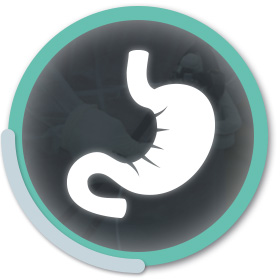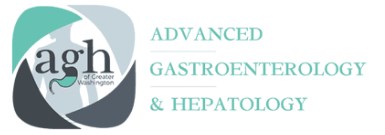
Percutaneous Endoscopic Gastrostomy (PEG) is a flexible feeding tube that is placed through the abdominal wall into the stomach. This is a safe and effective way to provide nutrition, fluids, and medications directly into the stomach, completely bypassing the mouth and esophagus. This is especially useful for those who:
- Have trouble swallowing
- Struggle with their appetite
- Or are unable to obtain nutrients through the mouth
Those who benefit from a PEG tube include stroke patients, brain injuries, and problems with the upper GI tract.
PEG tubes are placed by gastroenterologists, using an endoscope to guide the creation of a small opening in the skin on the upper abdomen. The tube is anchored in place by two small discs on either side of the abdominal skin and helps prevent the tube from moving. Once the tube is placed, the PEG is easy to use.
A clamp on the tube is used to close off the feeding tube and can be opened when in use and closed when it is not being used to avoid leakage of gastric contents.
Caring For Your PEG-tube Site
The area around the tube should be kept clean with either saline or a mild soap. You may want to place a special absorbent tube pad between the skin and the tube disc to avoid skin irritation. However, once the site heals, this may no longer be necessary. Do not use any lotion, ointment, powder, or sprays around the tube.
When using the tube, be sure to avoid thick or bulky contents and to flush the tube well after use.
When to Call Your Gastroenterologist
For some patients, PEG-tubes may be temporary, while for others, they may be a permanent solution. You’ll want to schedule regular follow-ups with your gastroenterologist to monitor your PEG tube. If you notice any of these conditions or symptoms, you should call your doctor right away:
- The PEG becomes blocked,
- The PEG tube was pulled out or displaced,
- You notice any signs or symptoms of infection,
- There is leakage around the stoma,
- There is bleeding from the tube insertion site,
- You experience diarrhea after feedings,
- Your belly is hard or swollen more than one-hour after feedings,
- You have new or worsening abdominal pain,
- You experience regular constipation
- You cough more or feel short of breath after feedings,
- You notice any of the nutrition, fluids, or medication inserted into the PEG in your mouth.
At AGH of Greater Washington, our dedicated gastroenterologist will guide you through every step of your PEG placement procedure and living with a PEG tube. Schedule your GI Consult at one of our convenient locations today.
Have questions? Fill out the form below!
The information AGH supplies on this website should not be used as a substitute to your regular physician’s medical advice. Your research from this website should not be used as a medical diagnosis. Consult your regular physician for diagnoses and treatments. The information found on this website is for educational purposes only. A formal consultation with a surgeon or doctor is needed before pursuing surgical procedures or medical treatments. Individual results may vary.
Gastroenterology Articles
Why is Early Detection So Important?
At Advanced Gastroenterology & Hepatology of Greater Washington, we’re dedicated to changing lives through innovative healthcare solutions. With liver disease affecting one in three Americans and often progressing silently, the importance of early detection cannot be overstated. Our state-of-the-art FibroScan test offers a glimpse into the future of liver health, where invasive procedures are no…
Read MoreWhat’s New at AGH of Greater Washington
At Advanced Gastroenterology & Hepatology of Greater Washington (AGH), we’re dedicated to pioneering health solutions that make a difference in our patients’ lives. With our latest offerings, including Semaglutide and Tirzepatide injections for weight loss, along with advanced FibroScan testing for liver health, we’re setting new standards for medical care in Virginia and Washington D.C.…
Read MoreWhat is FibroScan?
At AGH of Greater Washington, we’re at the forefront of innovative health solutions, consistently integrating advanced diagnostic tools to enhance patient care. A critical component of our services focuses on liver health — a vital aspect often overshadowed until significant symptoms emerge. Enter FibroScan, a groundbreaking liver scan technology that has transformed the landscape of…
Read More
